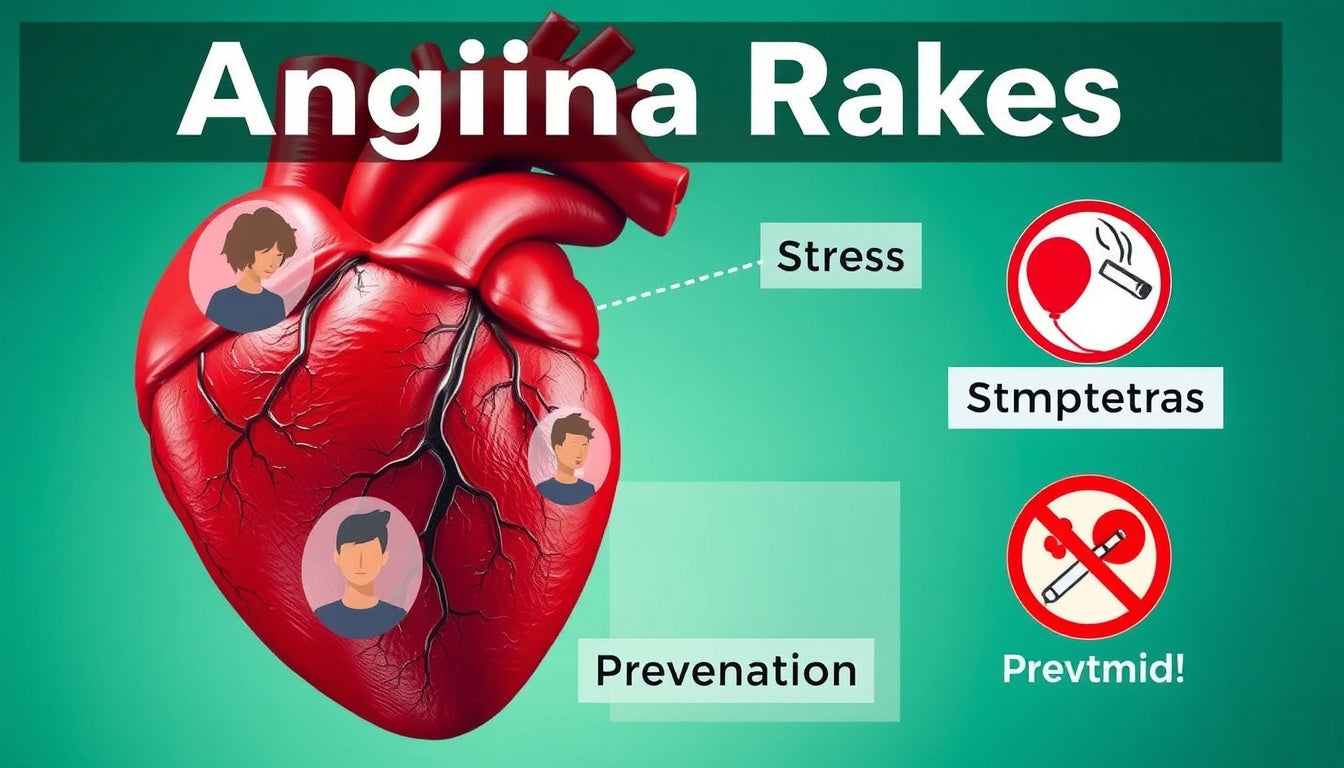
Unlock the Secrets: What You Need to Know About Angina Risks!
Angina is a common heart condition that often signals underlying coronary artery disease. Understanding the different types of angina and their associated risks can be a vital step toward protecting your heart health. This article breaks down the key concepts behind angina risks, focusing on unstable and stable angina, their causes, symptoms, and potential complications.
What is Angina?
Angina is chest pain or discomfort caused by reduced blood flow to the heart muscle. It is often described as pressure, squeezing, or tightness in the chest. The underlying cause is generally the narrowing or blockage of coronary arteries due to plaque buildup. However, the risks and symptoms may vary significantly depending on the type of angina.
Types of Angina and Their Risks
Unstable Angina: A Hidden Danger
Unstable angina is a more serious condition linked to coronary artery spasms and unstable plaque within the arteries. Here's what you need to know:
- Cause: In unstable angina, the arteries experience a spasm or sudden constriction, known scientifically as vasospasm.
- Plaque Characteristics: The plaque in unstable angina is "unstable," meaning it has a thin or damaged cap and can easily break off.
- Symptoms: This type of angina can occur at rest or even in the middle of the night. The chest pain often lasts for about 10 minutes, goes away, and then returns.
- Risks: The critical risk with unstable plaque is that it can break off and travel through the bloodstream, potentially causing a stroke or heart attack by blocking other parts of the vascular system.
Due to its unpredictable nature and greater severity, unstable angina requires immediate medical attention as it can be a precursor to a heart attack.
Stable Angina: Predictable but Serious
Stable angina is more common and generally less severe but still indicates underlying heart disease.
- Cause: It results from the presence of a stable plaque on the coronary arteries. This plaque has a fibrous cap that protects it from easily breaking apart.
- Symptoms: Chest pain or discomfort typically occurs during physical exertion or stress and usually resolves with rest or medication.
- Triggers: Activities that increase the heart's demand for oxygen, such as exercise or emotional stress, can trigger stable angina.
- Risks: Though the plaque is more protected, it can still break off if disrupted due to injury or exertion, leading to heart attacks.
Understanding the Differences to Protect Your Heart
Recognizing the differences between unstable and stable angina can help you better assess symptoms and seek timely medical care.
| Feature | Unstable Angina | Stable Angina |
|---|---|---|
| Plaque Type | Unstable, prone to rupture | Stable, fibrous cap protects plaque |
| Episodes | At rest, unpredictable | Triggered by exertion or stress |
| Duration | Around 10 minutes, recurrent | Shorter, resolves with rest |
| Risk Level | High, potential precursor to heart attack | Moderate, manageable with treatment |
If you experience chest pain that occurs unpredictably at rest or lasts longer than usual, consider it a medical emergency.
Final Thoughts: Take Action on Your Heart Health
Understanding angina and its risks empowers you to take action early. Lifestyle changes, medical evaluation, and appropriate treatment can significantly lower your risk of serious heart events. If you’re also concerned about overall vascular health and potential impacts on your quality of life—such as stress-related hair loss—explore specialized hair and health products that support well-being.
For more information on how to care for yourself holistically, including reducing stress-related symptoms that might affect hair health, visit Watermans Hair Products.
References:
- Coronary artery spasms and angina risk insights
- Plaque stability and heart attack correlation studies
Taking steps today to recognize angina symptoms and understand their risks could protect your heart tomorrow. Stay informed, stay healthy!













